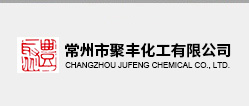
常州市聚豐化工有限公司
Changzhou Jufeng Chemical Co., Ltd.
Professional management, filling armored amine series products
Transportation, sales, and storage enterprises with transportation fleets,
laboratories and self-provided warehouses


常州市聚豐化工有限公司
Changzhou Jufeng Chemical Co., Ltd.
Professional management, filling armored amine series products
Transportation, sales, and storage enterprises with transportation fleets,
laboratories and self-provided warehouses

PRODUCTS
Jufeng Chemical
PRODUCTS

Anhydrous dimethylamine

Product index
| Index name | Index | Analysis result | ||
| Premium product | First grade | Qualified product | 2019.11.05 | |
| Ammonia, %≤ | 0.02 | 0.05 | 0.10 | 0.00 |
| Monomethylamine, %≤ | 0.10 | 0.15 | 0.20 | 0.03 |
| Dimethylamine, %≥ | 99.50 | 99.00 | 98.50 | 99.88 |
| Trimethylamine, %≤ | 0.05 | 0.10 | 0.20 | 0.02 |
| Methanol, %≤ | The supply and demand parties negotiated and determined | |||
| Water, %≤ | 0.20 | 0.30 | 0.40 | 0.07 |
Technical manual
| Molecular formula | C2H7N | Critical pressure (Mpa) | 5.17 |
| Content | ≥99% | Logarithmic value of Xinpure/water partition coefficient | -0.38 |
| Physical and chemical properties | Flash point (℃) | <17.8 | |
| Melting point | -92.19 | Upper explosion limit% (V/V: (steam)) | 14.4 |
| Boiling point (℃) | 6.88 | Lower explosion limit% (V/V: (steam)) | 2.8 |
| Relative density (water = 1) | 0.66 | Ignition temperature (℃) | 402 |
| Relative vapor density (air=1) | 1.55 | Appearance and traits | It is gaseous under normal temperature and pressure. |
| Saturated vapor pressure (Kpa) | 202.65(10℃) | Solubility | Easily soluble in water, but also soluble in many organic solvents (such as methanol, ethanol, etc.). |
| Heat of combustion (KL/mol) | 1741.8 | Use | It can be used in the production of pesticides, medicines and national defense chemical industries, as well as a variety of advanced solvents, petroleum additives and surfactants, water treatment agents, feed and food additives, etc. |
| Critical temperature (℃) | 164.6 |
Risk overview
| Risk category | Class 2.1 Flammable gas (21044) |
| Entry route | Inhalation, ingestion, transdermal absorption |
First-aid
| Skin contact | Take off your clothes, immediately rinse with plenty of water for 15 minutes, and then rinse with a 2.5% boric acid aqueous solution. In severe cases, seek medical attention. |
| Eye contact | Immediately open the upper and lower eyelids and rinse with plenty of water for 15 minutes, and then rinse with a 2.5% boric acid aqueous solution. In severe cases, seek medical attention. |
| Inhale | Leave the scene quickly to a place with fresh air and keep warm. If you have a clear mind, you can drink hot sweet tea. If breathing is difficult, give oxygen; if breathing stops, give artificial respiration immediately and send to hospital. |
| Ingestion | Those who mistakenly swallow them immediately rinse their mouths, drink enough milk and water, induce vomiting, and seek medical attention. |
Fire-fighting measures
| Fire extinguishing method and extinguishing agent | Cut off the power, spray with water, foam, carbon dioxide, and dry powder to extinguish the fire. |
| Precautions for fire extinguishing | Firefighters should wear protective clothing to put out the fire at a safe distance upwind, and wear gas masks or self-contained breathing apparatus. If the leaking gas source cannot be cut off immediately, the burning gas must not be extinguished. |
Leak emergency treatment
| Emergency treatment | First, cut off the fire source to prevent burning and explosion. The second is to cut off the source of the leak and quickly evacuate the personnel from the contaminated area to a safe place upwind for plugging treatment (protective clothing, gas mask or respirator must be worn). Call the police if necessary. |
| Elimination method | Use containers to collect leaks as much as possible (preferably airtight pressure-resistant containers). You can also slowly pass the leaks into a container filled with hydrochloric acid or water, or spray water to dilute and dissolve and build a dike or dig a pit for storage. Then use an explosion-proof pump to pump and transfer to prevent entering the water. A small amount of leakage can also be ventilated or drained to quickly disperse it. |
Operational disposal
| Operation precautions | Operators must undergo rigorous training and strictly abide by the operating procedures. Attention should be paid to ventilation and fires are strictly prohibited on site. Operators should wear personal protective equipment, load and unload lightly when handling, and operate in airtight. |
Stability and reactivity
| Stability | Stability |
| Incompatible materials | Strong oxidants (such as concentrated nitric acid, etc.), mercury, halogens, acids, chlorine. |
| Conditions to avoid | Air, open flame, high heat. |
| Aggregation hazard | Can't happen. |
| Decomposition products | Carbon monoxide, carbon dioxide, nitrogen oxide, nitrogen, water, etc. |
Disposal
| Disposal methods | Slowly add hydrochloric acid and control the lower temperature to make it all generate methylamine hydrochloride to a pH of 6, and then use the safe burial method to dig a hole for deep burial, or add excess water to dilute it and discharge it into the waste water system or perform it again deal with. |
| Disposal considerations | Do not add strong base to methylamine hydrochloride, otherwise the methylamine will be released again. |
HOME | ABOUT US | NEWS | PRODUCTS | EXAMINATION | FACTORY | ORDER | CONTACT | 中文版
Copyright(C)2021, Changzhou Jufeng Chemical Co., Ltd. All Rights Reserved. Supported by ChinaChemNet ChemNet Toocle Copyright Notice 備案序號:蘇ICP備2023003114號